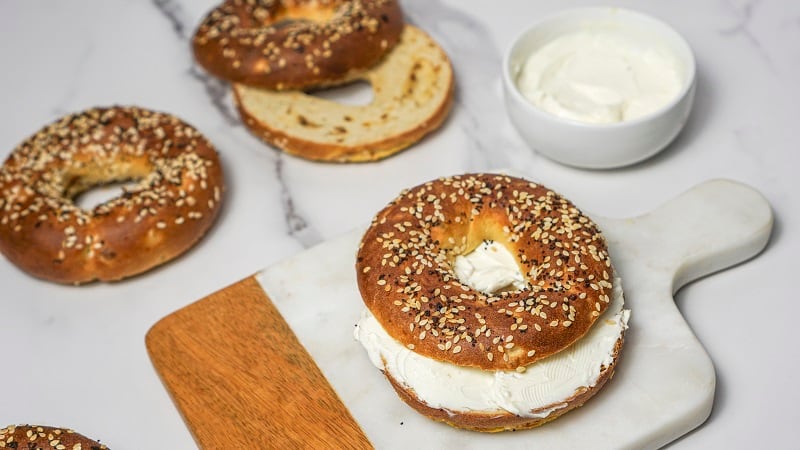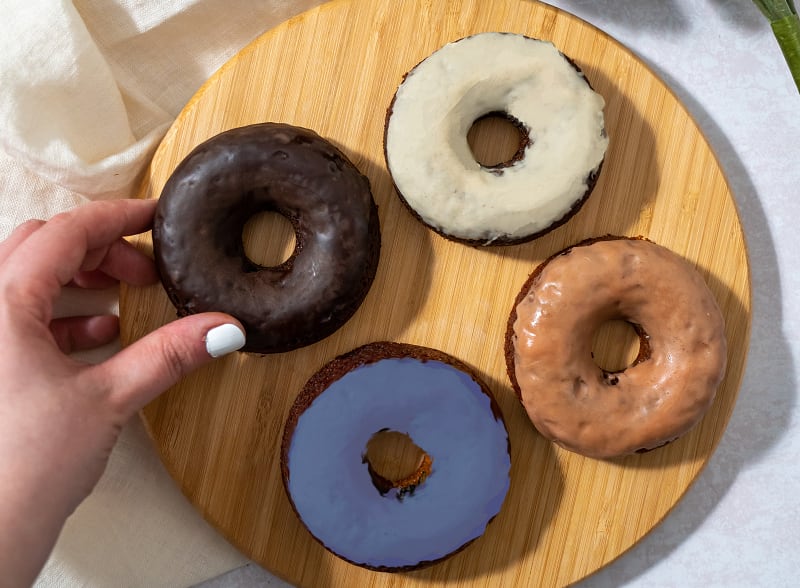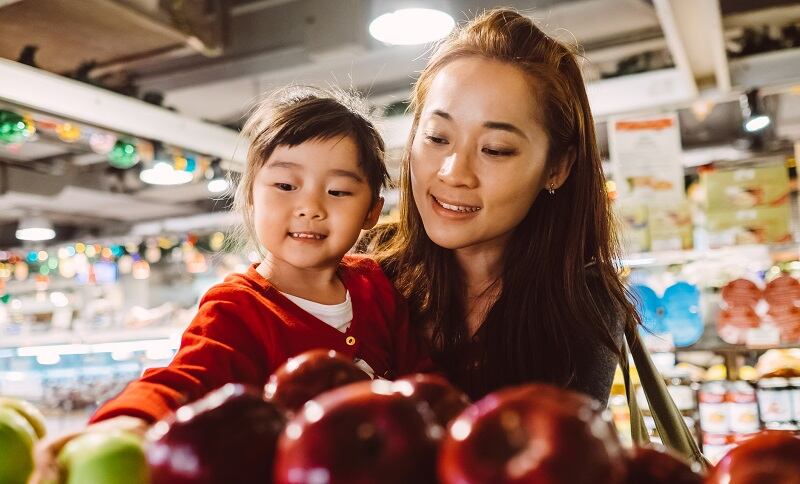US better-for-you baked good brand Hero Bread kicked off 2025 by growing its retail footprint from 4,400 to 6,000 stores and launching new products at Whole Foods, as the bakery industry prepares for the worst with trade uncertainty, company CEO YuChiang Cheng said.
Launched in 2021 by Cole Glass, Hero Bread offers a range of low-carb baked goods, including breads, buns and most recently bagels. Hero Bread’s Everything and original bagels launched first through the brand’s website and are now rolling out to Whole Foods.
Additionally, Hero Bread is now available in all 2,200 Albertsons stores nationwide as part of the recent retail expansion, Cheng explained.
“Our core mission is to focus on getting our product into the hands of as many people as possible. And that is largely distribution and scaling our production to meet that. You could have the best product, and it could help people, but if you can only buy it in 6,000 stores versus 30,000 stores, that is a big difference. So, we want to focus on being in everyone’s neighborhood,” he elaborated.
Bakers ‘will be very challenged’ by tariffs
Bakers are responding to the Trump administration’s tariffs, which are expected to increase manufacturing and raw ingredient costs, Cheng explained.
Hero Bread is well positioned to weather the supply chain volatility given its US manufacturing and its suppliers are from countries with smaller tariff risks. However, the bakery industry “will be very challenged,” he added.
“We source a lot of the stuff either locally or from countries with less tariffs, but a lot of bread manufacturers get their wheat and flour from Canada and obviously manufacture a lot in Mexico,” Cheng elaborated.
“Uncertainty causes people to tighten their wallets, and even if they have money, they sometimes won’t spend as much, and they will allocate more savings. So, that is something we just need to really watch carefully.”
YuChiang Cheng, CEO of Hero Bread
The bakery industry is banding together to demonstrate to lawmakers how important the sector is to the US economy, Cheng said. The bakery industry employs more than 800,000 people in the US and generates $186 billion for the US economy, according to the American Bakers Association 2023 report.
“Bakeries should be the poster child of manufacturing here in the US,” Cheng said. “If people are taxing the raw ingredients that come here that hinders our ability to produce here in the States. So, there is a great opportunity to educate the difference between manufacturing and jobs versus importing raw ingredients,” Cheng elaborated.
Consumer confidence dips on tariff turmoil
Tariffs also are hitting consumer confidence in the economy, which can add further headwinds to the baked goods and food and beverage industry, Cheng explained.
Economists suggest that the US avoided recession over the last several years due to consumer spending and strong economic sentiment, and “we would have to be a little concerned if that would change,” Cheng noted.
Consumer sentiment plummeted in March amid concerns of tariffs and inflation. The consumer sentiment index dropped to 57 in March from 64.7 in February, decreasing 28.2% year-over-year, according to the University of Michigan.
“Uncertainty causes people to tighten their wallets, and even if they have money, they sometimes won’t spend as much, and they will allocate more savings. So, that is something we need to really watch carefully,” Cheng elaborated.
Will tariffs sour M&A appetite?
CPG Q1 2025 M&A recap
CPG acquisition activity roared back in the first quarter of 2025, as major CPG companies bolstered their better-for-you offerings. PepsiCo purchased modern soda brand Poppi for $1.95 billion, and the makers of Dave's Killer Bread Flower Foods snapped up Simple Mills for $795 million. Additionally, plant-based pizza brand Blackbird Foods and seltzer brand Aura Bora were bought by private equity firms.
Tariffs also could slow acquisitions and venture capital deals, as companies and investors conserve capital in the face of volatility, Cheng noted. Last year, Hero Bread raised $21 million in Series B funding, which fueled its recent retail expansion.
“It is really great to see some exits with Siete and Poppi. It just shows that there are a lot of companies in CPG building a lot of value, so there is a lot of pent-up value that has had no avenue for exit, largely because of the capital markets,” Cheng noted.
Hero Bread is prioritizing building its brands and creating value amid the flurry of acquisitions, which in the long term will open up other opportunities, Cheng noted.
“If you build enough value, you do not have to raise any more money. If you build enough value, you can sell someday. You can go IPO someday, you can even take the cash and pay back your investors and then go run your company. So, there are a lot of options if you can just create a valuable company,” he elaborated.





